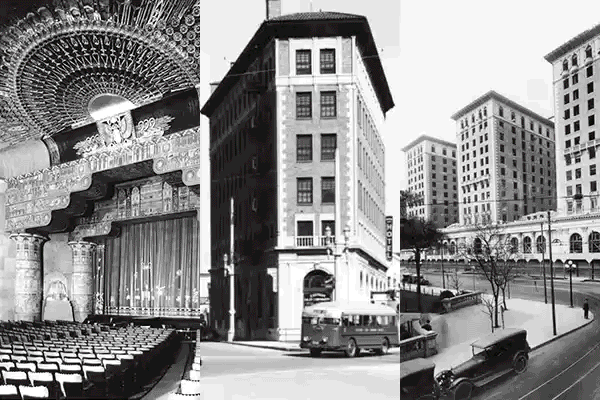Crispus A. Wright, 87; Son of Ex-Slave Became Lawyer and USC Benefactor
- Share via
Crispus Attucks “Chris” Wright, the son of a former slave who became an influential Beverly Hills civil rights lawyer, businessman and major benefactor to USC Law School, has died. He was 87.
Wright, who was named an honorary USC trustee a year ago, died Dec. 4 of natural causes in the Los Angeles home he built half a century ago.
In 1997, the retired attorney donated $2 million to fund USC Law’s Crispus Attucks Wright Scholarships for minority law students and others dedicated to practice in underserved minority communities. At the time it was the largest gift to USC by an African American.
Wright, the only black when he attended USC Law in the 1930s, was impressed when he visited the campus four years ago and “saw African Americans there,” he later told People magazine. “I woke up the next morning and knew where my donation would go.”
His gift also was prompted, he told The Times when the donation was announced, by his distaste for California’s then recent ban on affirmative action programs for state schools.
“We don’t climb the ladder to success alone,” the quiet multimillionaire told the Los Angeles Sentinel in March, discussing his philosophy of philanthropy. “We stand on the shoulders of hundreds who have sacrificed and paved the way for us and what better way to repay those brave and wonderful souls than to give something back. . . . “
Wright, a successful businessman who owned the Connor-Johnson mortuary and eight convenience stores as well as his law practice, had a long history of supporting the Los Angeles Sentinel.
He first met its publisher, Leon Washington Jr., in the 1930s when the paper was new and Wright was a student protesting stores’ refusal to hire blacks. Clearly in agreement on the “Don’t Spend Your Money Where You Can’t Work” boycott campaign, Wright and Washington became friends.
After Washington’s death in 1974, Wright continued advising his widow and successor publisher, Ruth Washington. He also became the paper’s financial angel, investing personally and serving as chairman of the board.
Wright helped Ruth Washington modernize the weekly newspaper, installing a computer system, updating auditing and other business operations, and typically encouraging the hiring of more young people.
Wright learned about dedication, education and community service at his father’s knee. Born into slavery in Louisiana, his father, Warner Richard Wright Sr., was freed at the end of the Civil War and attended Leland University, which had been established for ex-slaves. He became a teacher and principal in black schools and named several of his eight children for black heroes.
The youngest, Crispus Attucks Wright, was named for the free African American seaman who in popular accounts was considered the first person killed in the Revolutionary War when he was shot during the Boston Massacre in 1770.
Chris Wright moved to Los Angeles with his family when he was 5, and his father died one year later. The boy observed the problems his family faced when real estate covenants prevented them from finding a home in many Southern California neighborhoods. They settled in South-Central Los Angeles.
Symbolically, as a lawyer Wright later helped the NAACP prepare the late 1940s case that led the U.S. Supreme Court to strike down real estate covenants as unconstitutional.
Working two or three jobs, Wright earned a bachelor’s degree in political science at USC and then his law degree at USC in 1938.
After serving in the Army, he established his law practice on Central Avenue at Vernon Avenue. He took on civil and business cases, civil rights struggles, even the occasional murder trial.
Excluded from the existing bar associations because of his race, Wright in 1943 co-founded the John M. Langston Bar Assn. for African Americans, which continues to flourish. He was inducted into its Hall of Fame in 1990.
Wright later moved his office to Beverly Hills, where he worked until his retirement in 1987. Among his clients were Boys Markets, the Independent Retailers Assn. of Southern California and the Rapid Transit District, forerunner of the Metropolitan Transportation Agency.
“He served the black community, he served blacks and whites, his practice transcended culture and race,” said USC Associate Law Dean Tom Tomlinson, who had interviewed Wright in preparing a history of USC Law School.
Tomlinson said Wright was a “role model of personal accomplishment,” demonstrating how an “ambitious, able, bright young black man from Central Avenue” could use the nearby resources of USC to become a lawyer and serve his community.
A dedicated Republican, Wright tried unsuccessfully to unseat 26th District Congressman James Roosevelt in 1958, and was a staunch supporter of Richard M. Nixon’s political career.
But he never embraced the party’s conservative wing, and in 1964 formed a Republicans for Johnson Committee to back President Lyndon B. Johnson over GOP challenger Sen. Barry Goldwater.
Widowed in 1979, Wright lost his only son, Warner Richard Wright III, earlier this year. He is survived by one grandson, Warner Richard Wright IV, and one sister, Miriam Lee.
The family said funeral services will be private.
More to Read
Sign up for Essential California
The most important California stories and recommendations in your inbox every morning.
You may occasionally receive promotional content from the Los Angeles Times.









